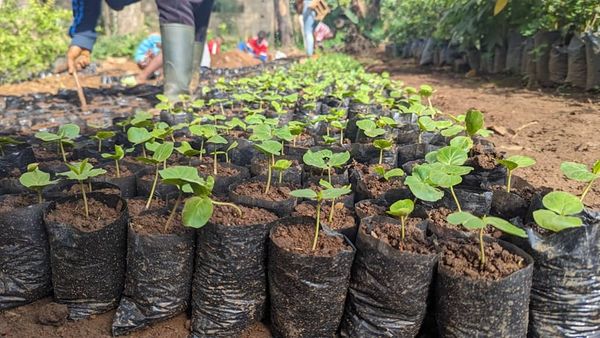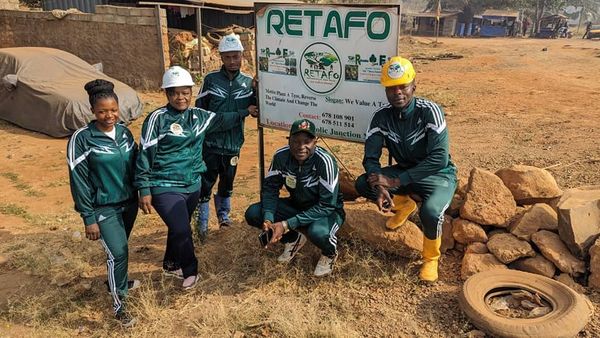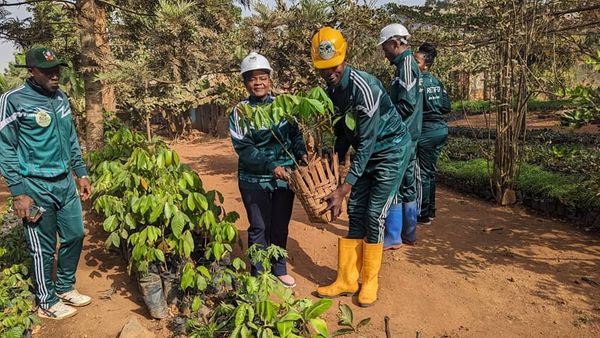
Voacanga Africana: A Powerful Medicinal Plant for Sustainable Wellness



Harness the natural healing power of Africa with Voacanga Africana! This remarkable tree boasts a rich history of traditional use for various health concerns.
What is Voacanga Africana?
Voacanga Africana, a tree native to Africa, is more than just a piece of beautiful flora. It’s a powerful medicinal plant with a rich history of traditional use in various cultures across the continent. Renowned for its diverse therapeutic properties, Voacanga Africana has been employed for centuries to address a range of health concerns.
Exploring the Potential Benefits:
Traditionally, local communities have utilized Voacanga Africana to potentially alleviate:
- Pain: It may offer relief from various aches and pains.
- Inflammation: The plant’s properties might help reduce inflammation in the body.
- Mental Health: Some believe it may have positive effects on mental well-being.
- Immune System Support: Voacanga Africana might contribute to a stronger immune system.
Beyond Traditional Uses: The Need for Further Research
While traditional knowledge offers valuable insights, it’s important to note that most of these potential benefits lack extensive scientific research. Further studies are required to validate the effectiveness and safety of Voacanga Africana for these specific uses.
A Sustainable Ally: Water-Friendly and Eco-Conscious
In a world increasingly focused on sustainability, Voacanga Africana stands out. Unlike many plants that require significant water resources, this remarkable tree thrives with minimal water needs. This characteristic makes it a perfect choice for:
- Regions facing water scarcity
- Individuals seeking eco-friendly gardening practices
Cultivating Wellness and Sustainability: A Symbiotic Relationship
By choosing to nurture Voacanga Africana seedlings, you’re not just making an investment in your own well-being. You’re also contributing to a sustainable ecosystem. This eco-friendly plant offers the potential for natural healing while promoting responsible water usage.
Ready to Explore the Potential of Voacanga Africana?
As research continues to explore the potential benefits of Voacanga Africana, this unique plant offers a glimpse into the power of traditional African medicine. Whether you’re interested in its potential health benefits or its eco-friendly nature, Voacanga Africana presents an exciting opportunity to explore the wonders of the natural world.
The Eco-Friendly Advantage:
Voacanga Africana, a remarkable medicinal plant native to Africa, offers a treasure trove of potential health benefits. But beyond its therapeutic properties, Voacanga Africana boasts a unique eco-friendly advantage: it thrives with minimal water requirements.
Why Water Matters:
Water scarcity is a growing concern worldwide. Traditional plant cultivation often demands significant water resources, placing a strain on already stressed ecosystems. This is where Voacanga Africana shines.
The Water-Wise Wonder:
Unlike its water-intensive counterparts, Voacanga Africana flourishes with minimal water. This characteristic makes it a perfect choice for:
- Regions with limited water availability: Voacanga Africana can thrive in dry climates or areas facing water shortages, offering a sustainable option for cultivating medicinal plants.
- Environmentally conscious individuals: By choosing Voacanga Africana, you can cultivate a powerful medicinal plant while minimizing your water footprint and promoting responsible resource management.
Sustainable Solutions, Natural Healing:
By nurturing Voacanga Africana seedlings, you’re not just promoting your own well-being through its potential health benefits, but also contributing to a more sustainable future. You’re making a conscious choice for the environment while embracing natural healing practices.
Explore the Potential:
Delve deeper into the world of Voacanga Africana and discover the potential it holds for both your health and the planet. Embrace a sustainable approach to wellness and explore the wonders of this remarkable eco-friendly medicinal plant.
Invest in Your Wellbeing and the Planet:
- By nurturing this seedlings, you’re not just investing in your own health, but also contributing to a sustainable ecosystem.
- Experience the healing potential of this plant while promoting a greener future.
- Explore the wonders of this amazing palnt and embark on a journey towards natural wellness.














